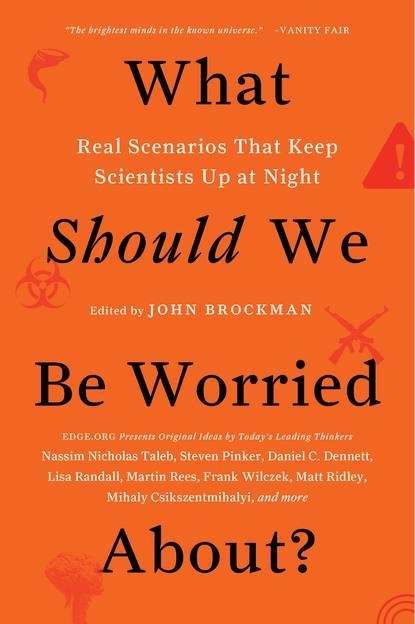What Should We Be Worried About?
Real Scenarios That Keep Scientists Up at Night

Editorial Harper Perennial
Fecha de edición febrero 2014 · Edición nº 1
Idioma inglés
EAN 9780062296238
528 páginas
Libro
encuadernado en tapa blanda
Resumen del libro
This is the question John Brockman, publisher of Edge.org ("The world's smartest website" -The Guardian), posed to 150 of the world brightest and most influential minds. Some of the most troubling, potentially earth-shattering problems of the future (including the effects of hyperactive media on children, and the growing number of newly synthesized narcotics) are barely on the public radar. At the same time, some of our most culturally entrenched fears (like overly-sophisticated artificial intelligence, or aggressive extraterrestrials) can confidently be abandoned. We worry because we are built to anticipate the future. Nothing can stop us from worrying, but science can teach us how to worry better, and when to stop worrying.
Contributors include:
Nassim Nicholas Taleb, Martin Rees, Frank Wilczek, Mihalyi Csikszentmihalyi, Arianna Huffington, Daniel C. Dennett, Steven Pinker, and many more.
Biografía del autor
John Brockman(Boston, 1941) es un empresario cultural con una amplia trayectoria en el campo del arte, la ciencia, los libros, el software e Internet. En 1960 sentó las bases de los entornos cinéticos intermedia aplicables al arte, al teatro y a los negocios mientras asesoraba a General Electric, Columbia Pictures, el Pentágono, la Casa Blanca... En 1973 creó su propia agencia literaria y de software. Es fundador de Edge Foundation 1 y editor de Edge, aclamada página web donde los pensadores más destacados, líderes de lo que él llama Tercera Cultura , analizan la ciencia más vanguardista. Es autor y editor de varios libros, entre ellos: La tercera cultura (1995); The greatest inventions of the past 2000 years (2000); Los próximos cincuenta años (2002) y The new humanists (2003). Goza del privilegio de haber aparecido en la primera página del Science Times (1997) y del Arts x{0026} 38; Leisure (1966), ambos suplementos del New York Times.







